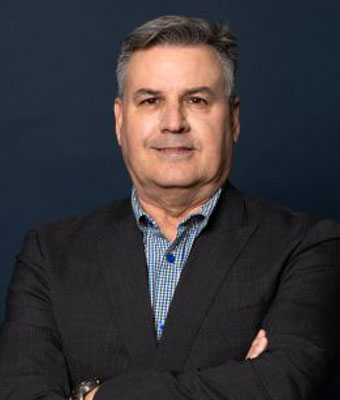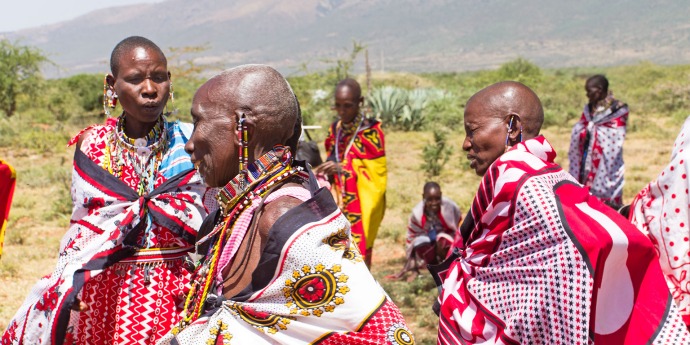DOCTOR OF PHILOSOPHY SPECIALISING IN BUSINESS ADMINISTRATION
Make an original contribution to research
JOIN A VITAL RESEARCH COMMUNITY
PhD students at the UCT GSB are a vital part of our research community and research strategy.
The University of Cape Town is Africa’s leading research institution and the PhD programme at the GSB is an essential component of this.
PhD candidates are expected to:
- Develop a formal research proposal within the first six months of registration
- Set commitments and a timeline outlined in a Memorandum of Understanding (MOU) with their supervisor which needs to be signed every year
- Take a proactive approach to identifying learning needs and implementing suitable responses
- Actively participate in the GSB Research Calendar
- As appropriate, actively participate in the academic life of the GSB through lecturing, research seminars and / or co-supervision of MBA research reports
* Application & Course fees are provisional for 2026, and are subject to annual UCT council approval. If you would like more information on fees for this programme, click here.
uct gsb PHD overview
Learn more about which attributes and qualifications are required for the UCT GSB PhD. The UCT GSB is committed to broadening access to postgraduate education through funding and scholarship opportunities. Explore funding options available to PhD candidates.
ORIGINATE NEW IDEAS
Join our research community to originate new ideas and develop innovative solutions to today’s pressing challenges
In line with the GSB’s research mission of "engaged inquiry in a complex world," PhD students are expected to make an original contribution to research.
Research at the UCT GSB is focused around three major themes: emerging markets finance, investment and trade; social innovation and sustainability; and values-based leadership.
FREQUENTLY ASKED QUESTIONS
The typical duration of a PhD project is between three and four years, if the student is dedicating the bulk of her or his time to the project.
A candidate must be registered for at least two consecutive years, although registration for a year at another university may be accepted as part of that period.
Although no maximum period of time is prescribed for completing a thesis, the university stipulates a "reasonable time", which is generally taken to be five years. If a candidate is not making satisfactory progress, the Commerce Faculty's Higher Degrees Committee may issue a warning, and, if necessary, may refuse re-registration.
Though we do allow part-time PhD students into the programme we recommend that students are able to dedicate at least 20 hours a week to the project. Experience shows that it is otherwise difficult to create and maintain the necessary momentum. Supervisors can at their discretion require students to adhere to certain time commitments.
Your nominated PhD supervisor must be a full-time academic at the GSB and must be actively publishing in scholarly literature in the field in question. GSB faculty can discuss applicants' research ideas and preliminary proposal at their discretion, but we advise applicants not to contact potential supervisors without some preliminary research ideas.
Please note, it is not always possible to find a supervisor who is both suitable and available, and an applicant cannot be registered if there is no available supervisor for the proposed research at the GSB.
For a full list of GSB faculty and their research interests, check the GSB website.
Read the guidelines for PhD candidates and supervisors here.
Once registered in the PhD programme, you will have approximately six months to develop a full research proposal. This proposal will need to be presented formally to a committee consisting of at least three faculty members, including the supervisor. The key purpose of this presentation will be to a) assess that the student has been making adequate progress and b) provide some helpful feedback so that the student can improve her/his proposal prior to entering the field.
This process consists of the following:
- Each PhD student commits to a particular slot in the dedicated student presentation PRC sessions in the GSB Research Calendar. If possible, each two-hour slot will include proposal presentations that are broadly in a related theme. There will be three presentations in each slot. This commitment to a particular slot ought to happen as soon as possible.
- Each proposal is assigned to an appraisal committee including at least three faculty members: the supervisor, the GSB Research Director (or her/his nominee), plus at least one additional faculty member with a pertinent background. The committee will be agreed upon by the GSB Research Director and the supervisor.
- Each student submits to the appraisal committee (via the Research Director) a digital copy of the proposal at least one week prior to the presentation.
- Each student has 20 minutes to present her or his proposal, followed by 20 minutes discussion.
The appraisal committee will provide formal feedback to the student in writing. The final appraisal could be summarised in one of the three categories, akin to those provided for in PhD final assessments, i.e. a) good as is; b) requires some changes; c) wholly unsatisfactory. If the verdict is "a" the proposal and the committee's recommendation are sent directly to the Higher Degrees Committee in the Commerce Faculty. If the result is "b" the student will need to make specific revisions to the satisfaction of the supervisor, after which it will be sent to the Higher Degrees Committee. Inadequate proposals that receive a "c" verdict will be considered on a case-by-case basis, but the likely outcome is that the student will not be allowed to re-register in the next year for a PhD.
The GSB has an extensive network both locally and globally, and we frequently facilitate introductions for our students.
During your research, you will have access to industry experts and key local and global specialists - from deep-content experts to market professionals working in the community. Their insight and feedback will help you to improve your solutions.
You will also have the opportunity to connect with like-minded professionals across different industries and build your network.
Once you graduate from the UCT GSB you will join our alumni network which is a dynamic forum that comprises more than 23 000 past GSB students in 68 countries worldwide. Many of the GSB’s alumni hold key positions in top companies or have started their own successful businesses. Alumni play a vital role in supporting and encouraging more recent graduates to follow in their footsteps and GSB students who find employment after graduation - particularly internationally - frequently do so through alumni contacts.
Learn with the best
Our Internationally acclaimed researchers and teachers are all dedicated and gifted individuals who contribute directly to UCT GSB's reputation of excellence.

Programme Director

Programme Director


Head: Recruitment and Admissions
TAKE THE FIRST STEP TODAY
Acquire new competencies and move your career to the next level!
Ideas Exchange

Becoming a businessperson is not a straightforward journey for all
Building business skills to improve livelihoods is increasingly being recognised as a mechanism to lift communities out of extreme poverty. But in many survivalist communities, the principles of business can clash with the existing values of the community.
Read Article